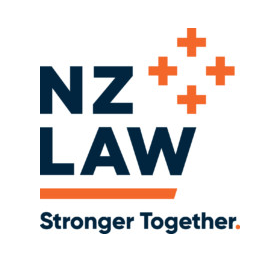Is the attorney carrying out their role correctly?
If your family member is losing capacity and has an Enduring Power of Attorney (EPA) in place, you will be reassured that their attorney is working in your loved one’s best interests. Very occasionally, however, this isn’t the case. In this article, we look at how an EPA works and what can be done if you believe the attorney is not doing their job properly.
Enduring power of attorney
An EPA is a legal document that allows someone else to step into another’s shoes and make decisions on their behalf if they lose the capacity to make important decisions for themselves. An attorney is usually a close relative or trusted friend of the person losing capacity (the donor).
There are two types of EPA: for personal care and welfare, and for property.
An EPA for personal care and welfare allows the attorney to make decisions on behalf of the donor about things such as medical treatment and living situations – including residential care.
An EPA for property allows the attorney to make decisions about a person’s assets and allows them to directly access bank accounts, selling property, making payments on the donor’s behalf and so on.
EPAs can be a very effective way of ensuring that decisions can be made in a timely and cost-effective way for the benefit of the donor. An EPA also allows the donor to decide, in advance of losing capacity, who they want making decisions on their behalf should the need arise. But, as an EPA provides the attorney with significant powers, an EPA can be misused or abused.
Getting information
If you are suspicious that the attorney is not working in the donor’s best interests, you should gather information about what the attorney is actually doing.
Ask them for a broad overview of the steps that they are taking on behalf of the donor and discuss with them any concerns that you might have.
When the donor made the EPA, one of the questions they will have been asked is whether they wanted their attorney to consult with other family members before making decisions, or whether they wanted their attorney to provide information to other family members.
If you have not seen the EPA document, you can ask if either of those provisions were included. If the donor made it a requirement that the attorney either consults with you or provides information to you, then that will give you enhanced powers to obtain important information.
If the donor did not include a requirement that the attorney consult with you or provide you with information, you can still ask for an overview; many attorneys will be happy to provide that.
But if you are not receiving information and you have ongoing concerns – what can you do?
Could the attorney transfer assets to themselves?
As an attorney has the ability to access the donor’s assets, sometimes issues can arise where the attorney will act for their own benefit, and not the benefit of the donor. They may transfer money to themselves, withdraw and fail to account for cash, or make personal use of the donor’s property, for example living in their property without paying rent or making use of their car.
If you are concerned that this is happening to your family member, you can apply to the Family Court under the Protection of Personal and Property Rights Act 1988 to have the court review particular transactions or decisions made by the attorney. It is also possible to apply to the Family Court to have the attorney removed and replaced if they are acting outside of the powers given to them by the donor.
The court process is not straightforward, but it can provide effective remedies to protect the donor and their assets from abuse.
Assets taken by the attorney after donor dies?
It is not uncommon for an attorney’s actions to come to light only after the death of the donor, usually when there is significantly less in the donor’s estate than was expected.
The Family Court can review an attorney’s decisions either before or after the donor’s death. It is not necessarily too late to recover assets that the attorney has transferred to themselves without authority.
Conclusion
There are steps that concerned family members can take if they are suspicious about the actions of a donor’s attorney. These include obtaining information, recovering misappropriated assets and having the attorney removed if needed.
If you are unsure of the status of your family member’s affairs, don’t hesitate to contact us – we are here to help.
Content copyright © NZ LAW Limited, 2025
